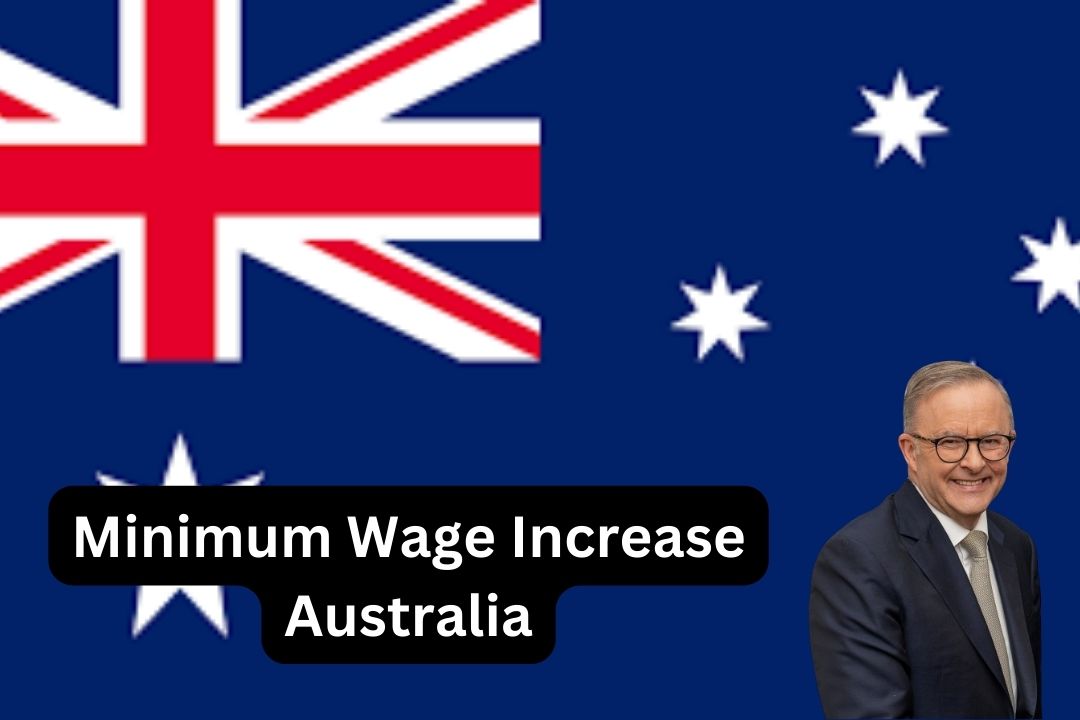Whether recruiting your first employee or expanding your workforce, here’s what you should know about Australia’s minimum wage rates. Here find about Minimum Wage Increase Australia. To help set your firm up for success, business owners must be aware of and comply with all of their regulatory requirements regarding salary payment. The Fair Work Commission, an independent agency, determines the minimum wage. It functions under the Fair Work Act of 2009. While there is no sign that this arrangement will change in the short or medium term, it is essential to note that if federal legislation is changed or replaced, the way the minimum wage is calculated and enforced may also change.

What is Australia’s minimum wage?
Starting July 1, 2024, the minimum wage is $24.10 per hour or $915.90 for each 38-hour workweek. This represents a 3.75% rise in the national minimum wage. This increase is effective from the first entire pay period beginning on or after July 1, 2024.
Minimum award increases for Australian employers:
- Awards specify the minimum pay and working conditions that employees are entitled to. They usually refer to a specific business or occupation.
- When an award or enterprise agreement does not cover employees, a national minimum wage order protects them from exploitative practices.
- Awards cover minimum salary rates, yearly leave, working hours, penalty rates, allowances, and other minimum requirements.
- The Commission announced that the minimum award wage will increase by 3.75% on July 1, 2024. If your weekly pay cycle begins on Wednesday, the new rates will apply on Wednesday, July 3, 2024.
Penalty rates Explained:
Penalty rates are the legal obligation companies pay their employees more when they work weekends, public holidays, overtime, late night, or early morning hours. Make sure to verify the penalty rates for your employees’ prizes here.
Fair Work Pay Calculator
The Fair Work Pay Calculator is an online application that helps companies and employees determine base pay rates, allowances, and penalty rates. Employers and employees can use the step-by-step questionnaire to determine the most appropriate reward for their situation.
Who determines the minimum wage in Australia?
Since 2010, the Fair Work Commission’s Expert Panel has decided the minimum wage. Each year, it evaluates the current minimum wage and makes a decision that goes into effect on July 1 of the next fiscal year. The Expert Panel comprises seven people: a president, three additional full-time members, and three part-time members. They are labor relations, economics, social policy, and commerce experts. The Fair Work Act of 2009 requires the Expert Panel to publish any written submissions from interested persons or organizations. The Expert Panel then comments on the submissions. The Act also requires publicizing the Expert Panel’s research, ensuring transparency, and allowing for submissions based on the findings.
Minimum salary for Apprentices:
The relevant award and registration agreement specify the apprentice’s pay rate and entitlements, including sick leave, yearly leave, and scheduled breaks. Pay rates vary slightly between industries based on the nature of the task, the risk involved, and the apprentice’s age. Apprenticeships are tiered, and apprentices advance to the next level by working for a set period or demonstrating proficiency. They earn more money as they advance in their careers. Regarding apprentice wages, the most critical issue is that employers follow the conditions outlined in the relevant award.
Retirement savings
Employers are required to pay a minimum 11% superannuation contribution to their employees who are 18 years old or older or who work more than 30 hours per week – however, this is set to rise gradually to 12% by 2025. This applies to full-time, part-time, and casual employees. If employers are confused about their superannuation requirements, call the Australian Taxation Office (ATO) at 13 72 26 or go to their website.